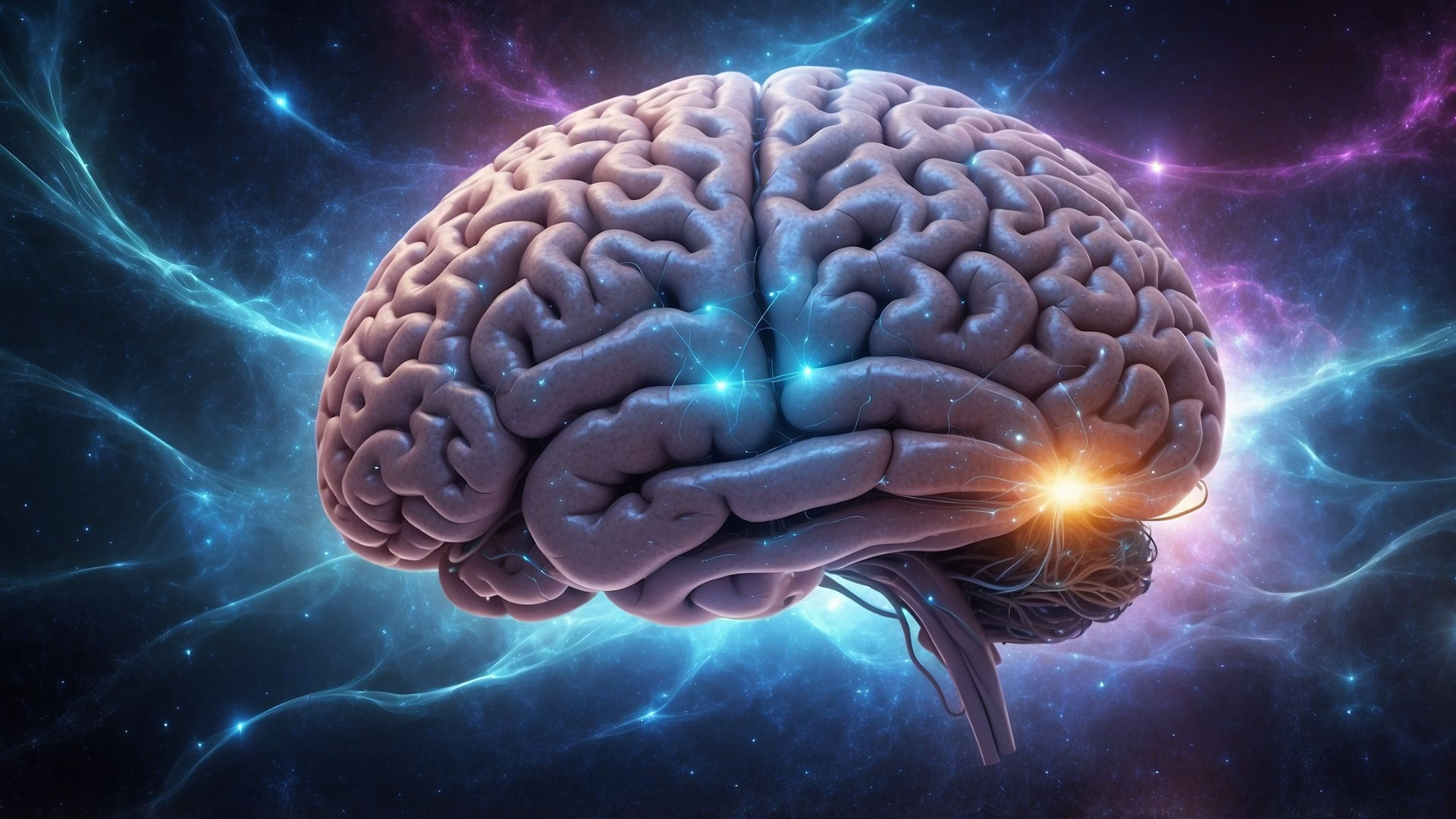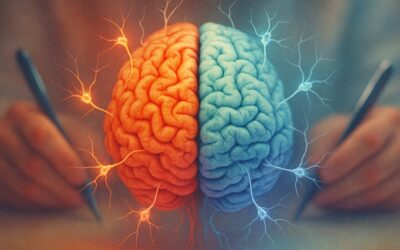Consciousness is one of the most profound mysteries of existence. It is the very thing that allows us to experience the world, form memories, and reflect on ourselves. But what exactly is consciousness? Despite centuries of exploration by philosophers, neuroscientists, and psychologists, its true nature remains elusive. Understanding consciousness is not just a scientific endeavor; it’s a journey into what makes us human.
What Is Consciousness?
At its core, consciousness is the state of being aware of and able to think about one’s own existence, sensations, thoughts, and surroundings. It’s the difference between being awake and alert versus being unconscious or in a deep sleep. But consciousness goes far beyond mere wakefulness—it’s about experiencing life and having a subjective sense of “self.”
Philosophers like René Descartes famously said, “I think, therefore I am,” linking consciousness to our ability to think and reflect. Neuroscientists, on the other hand, focus on the brain’s role, seeking to understand how neural activity gives rise to subjective experiences, or what is often called “the hard problem of consciousness.”
The Components of Consciousness
Consciousness can be broken down into several components:
- Awareness: This involves being aware of the environment and oneself. For example, you’re aware of the chair you’re sitting on and the thoughts running through your mind.
- Intentionality: Consciousness often directs itself toward something. When you’re reading a book or focusing on a task, your mind is intentionally engaged.
- Subjectivity: This refers to the personal, unique perspective each individual has. No two people perceive the world in exactly the same way.
- Qualia: These are the subjective, individual experiences of phenomena—like the redness of a rose or the bitterness of coffee. Qualia make consciousness deeply personal and hard to quantify.
How Does the Brain Create Consciousness?
The brain is the command center of consciousness, but scientists are still unraveling how this three-pound organ gives rise to our rich inner lives. Research points to several key areas:
- The Cerebral Cortex: This outer layer of the brain is crucial for higher functions like thought, memory, and decision-making.
- The Thalamus: Often called the brain’s relay station, the thalamus processes sensory information and helps maintain wakefulness.
- The Default Mode Network (DMN): This network of brain regions becomes active when we’re daydreaming, reflecting on ourselves, or imagining the future.
Despite these insights, we still don’t fully understand how neural signals create the feeling of being “alive” inside our minds.
Philosophical Perspectives on Consciousness
While neuroscience studies the brain, philosophy explores the “why” and “how” of consciousness from a conceptual angle. Two major questions dominate the philosophical debate:
- Dualism vs. Materialism: Dualists argue that the mind and body are separate, with consciousness existing independently of the physical brain. Materialists believe consciousness arises entirely from physical processes within the brain.
- The Hard Problem of Consciousness: Coined by philosopher David Chalmers, this term refers to the difficulty of explaining why and how subjective experiences arise from neural processes.
Can Machines Ever Be Conscious?
With advancements in artificial intelligence, the question arises: can machines achieve consciousness? While AI can simulate human-like behavior, it lacks subjective experiences and self-awareness—at least for now. Understanding the nature of consciousness is crucial before we can determine if a machine could ever truly “think” or “feel.”
Why Does Consciousness Matter?
Consciousness is at the heart of our understanding of reality. It shapes our perceptions, decisions, and interactions with the world. By studying consciousness, we gain insights into mental health, improve artificial intelligence, and even explore age-old questions about the meaning of life.
Moreover, understanding disorders of consciousness—such as comas or vegetative states—can help doctors develop better treatments and improve the quality of life for patients.
Mysteries Yet to Be Solved
Despite progress in understanding consciousness, many questions remain unanswered:
- How and why did consciousness evolve?
- Is consciousness unique to humans, or do animals and even plants have some form of it?
- Can consciousness exist without a physical body, as some spiritual traditions suggest?
These unanswered questions keep the study of consciousness one of the most exciting fields in science and philosophy.
The nature of consciousness is a puzzle that bridges science, philosophy, and art. It challenges our understanding of existence and inspires us to explore what makes us truly human. As we continue to unravel its mysteries, we’re not just learning about consciousness—we’re learning about ourselves.
So, what do you think consciousness is? Is it just the result of brain activity, or does it hint at something more profound about the universe? The search for answers continues, and every new discovery brings us closer to understanding the essence of life itself.
Let’s Talk
Consciousness is one of those topics that feels both incredibly familiar and impossibly mysterious. Think about it—you’re using your consciousness right now to think about consciousness. It’s like a mental version of trying to see your own eyes without a mirror. But here’s a fun question: how often do we take it for granted? It’s always there, humming along in the background, until we stop and ask, what is this thing we call awareness?
One thing we didn’t dive into earlier is the idea of altered states of consciousness. Sleep, dreams, meditation, and even those groggy moments when you wake up and aren’t sure where you are—all of these give us a glimpse into how fluid consciousness can be. Have you ever had a dream so vivid it felt more real than waking life? Or one of those moments during meditation where you feel completely at peace, almost like you’ve stepped outside yourself? These experiences suggest that consciousness isn’t a fixed state; it’s more like a spectrum.
And what about animals? Does your dog experience consciousness when it looks at you with those “I love you, feed me” eyes? Scientists have debated this for years. Some say animals are conscious in ways similar to us, while others argue that their awareness is more instinctual. But if you’ve ever seen a chimp use tools or an octopus escape from a tank, it’s hard not to wonder if their minds are richer than we imagine.
Here’s another curveball: could plants have some form of consciousness? Okay, stay with me. Plants respond to stimuli—they grow toward light, release chemicals when threatened, and even seem to communicate through their root systems. It’s not consciousness as we know it, but it makes you wonder if awareness could exist in forms we don’t yet understand.
Let’s not forget the ethical implications. If consciousness is the thing that makes us human, how should we treat beings that might also have some level of awareness? Should the possibility of animal consciousness change how we interact with the natural world? And then there’s artificial intelligence. We’re building machines that can mimic human behavior, but does that mean they could one day become conscious? If so, what would that even mean for concepts like morality and rights?
At its heart, the study of consciousness is a reflection of our curiosity about existence. Why do we perceive the world the way we do? Could our consciousness be connected to something larger—like a collective consciousness or even the fabric of the universe itself? It’s one of those topics where the more you think about it, the more questions you have.
So here’s something to ponder: if consciousness is the key to experiencing life, how can we use it more deliberately? What would happen if we paid more attention to our thoughts, emotions, and the present moment? Would we understand ourselves better, or would we just get lost in an infinite loop of overthinking? Either way, it’s worth exploring.
Let’s Learn Vocabulary in Context
Let’s start with “consciousness.” This word is everywhere when we talk about awareness and thought. In simple terms, it’s the state of being awake and aware of your surroundings and yourself. If someone says, “I lost consciousness for a moment,” they mean they blacked out. But in deeper conversations, it’s about the mystery of being. Next time you’re staring at the clouds, you’re using your consciousness to appreciate that moment.
Another key term is “awareness.” It’s like consciousness’s close cousin. Awareness is knowing what’s happening around you. For example, being aware that someone is watching you can make you act differently, like suddenly walking straighter or pretending to check your phone.
Now, “subjectivity.” This is what makes your experience unique to you. The way you taste chocolate might be completely different from how someone else tastes it. Subjectivity is why no one can truly know what it’s like to be in someone else’s shoes, even if they’ve walked a mile in them.
Let’s dive into “neural activity.” This phrase refers to the electrical and chemical signals in your brain that keep things running. It’s like the wiring in a house—except instead of lights turning on, it’s thoughts, emotions, and memories sparking to life.
Then there’s “qualia.” This is a fancy way to describe the individual sensations we experience, like the redness of red or the sweetness of honey. You might think, how could anyone see red differently? But qualia reminds us that everyone’s experience is subjective and personal.
The term “self-reflection” is another big one. This is the ability to think about your own thoughts. Ever caught yourself overthinking? That’s self-reflection in action. It’s what makes us question our decisions and sometimes cringe at things we did five years ago.
How about “altered states”? These are changes in your normal consciousness, like when you’re dreaming or meditating. Even being under anesthesia counts. It’s fascinating how your brain can shift gears like that, almost as if it’s flipping through different channels of awareness.
Let’s not skip over “collective consciousness.” This idea suggests that groups of people, or even all of humanity, share a kind of shared awareness. Think of moments when entire communities feel united, like during a major world event. It’s like everyone is on the same wavelength, even if only for a moment.
Another useful word is “introspection.” This means looking inward, examining your thoughts and feelings. It’s what you do when you journal about your day or sit quietly to process something that’s happened. Introspection helps us understand ourselves better, but it can also lead to a spiral of overthinking if we’re not careful.
Finally, let’s explore “ethics.” In the context of consciousness, ethics asks questions like, how should we treat beings with awareness? Whether it’s animals, humans in altered states, or even future AI, ethics forces us to think about the right way to act in light of what we know—or don’t know—about consciousness.
Here’s something to think about: how does your awareness of your own consciousness shape the way you interact with others? And have you ever had a moment of introspection that completely changed the way you see the world?
Let’s Discuss & Write
Discussion Questions
- What do you think makes human consciousness unique compared to animals or machines?
- How might altered states of consciousness, like dreams or meditation, give us clues about the nature of awareness?
- Do you believe there’s a collective consciousness that connects all humans? Why or why not?
- Should we consider ethical guidelines for how we interact with animals and AI, given the possibility of some level of consciousness?
- How can introspection and self-awareness help us grow as individuals?
Writing Prompt
Write a short reflective essay on a moment when you became deeply aware of your own thoughts or emotions. Describe what triggered that awareness, how it felt, and what you learned from the experience. Did it change the way you see yourself or the world? Aim for 250–300 words, focusing on vivid details and personal insights. End with a question to inspire others to reflect on their own experiences with consciousness.










0 Comments